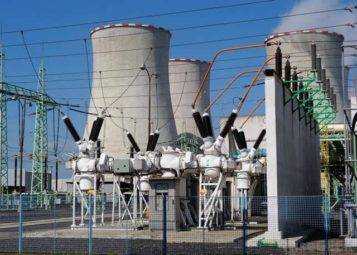In a significant move, the Federal Government, through the Bureau of Public Enterprises (BPE), has embarked on the sale of five power plants under the National Integrated Power Projects (NIPP), marking a crucial development in the country’s energy sector. The transaction, currently in progress, aims to generate approximately $1.15 billion in revenue, as revealed on Tuesday.
Details of the Transaction and Pricing Strategy
Sources close to the matter have disclosed that, despite the international benchmark suggesting a value exceeding $5 billion for the power plants, the BPE is strategically planning to sell these facilities at a slightly above $1.1 billion. Acting Director-General of the BPE, Ignatius Ayewoh, confirmed the ongoing nature of the transaction, emphasizing that it is yet to be concluded.
The power plants slated for sale include the 434 megawatts gas-fired Geregu II power plant in Kogi, the 451MW Omotosho II plant in Ondo, and the 750MW Olorunshogo II plant in Ogun State. Additionally, the 563MW Odukpami power plant in Calabar, Cross River State, and the 451MW Benin-Ihovbor plant in Edo State are part of this strategic divestment.
Breakdown of Power Plants and Pricing Structure
Insiders at the BPE have provided insight into the pricing structure of the power plants. For instance, the Omotosho plant, equipped with four power-generating turbines, is projected to be sold at approximately $85 million, while the Olorunshogo NIPP, also featuring four turbines, is valued at $170 million. The Benin-Ihovbor plant, boasting five power-generating turbines, carries a price tag of $420 million. Furthermore, the Calabar Odukpami plant, with five turbines, is expected to fetch around $260 million, and the Geregu plant, featuring four turbines, is estimated at $215 million.

These power plants, equipped with Siemens turbines capable of generating about 115MW of electricity each, represent a significant asset in the country’s energy infrastructure. The government’s decision to divest these assets is poised to reshape the dynamics of the energy sector while providing a substantial boost to the nation’s economy. As the transaction progresses, stakeholders will keenly observe the implications of this strategic move on both the energy landscape and economic sustainability.
Outcry Against Government’s Attempt to Offer Power Plants at a Low Price
There has been a growing outcry against the government’s move to privatize power plants at a seemingly undervalued rate. Critics argue that the Bureau of Public Enterprises (BPE) is planning to sell these facilities, which are estimated to cost over $5 billion based on international benchmarks, at a significantly lower price of just above $1.1 billion. A prominent figure with the handle ‘Sphere 9’ on X social media platform expressed concerns, stating that such a substantial reduction in value could have long-term repercussions for the nation’s economic interests.
Furthermore, Uzodinma Charles Idaho, also on X handle, voiced strong opposition, deeming the potential sale as unacceptable. Idaho emphasized that the Nigerian government should not compromise the nation’s assets for any reason. The controversy has sparked a wider discussion about the transparency and fairness of the privatization process, bringing to light the need for clarity and integrity in such crucial economic decisions.
Journalists and Advocates Call for Transparency in Power Sector Privatization
In response to the controversy, various journalists and advocates, including those affiliated with the ‘Journalist Against Poverty’ handle on X, have highlighted the crucial importance of transparency in the power sector privatization. They argue that the lack of transparency has been a major contributing factor to the underperformance of the sector. The 2013 power sector reform, touted as a landmark change, is now criticized as a monumental fraud.

Advocates emphasize that for the privatization to succeed, the Bureau of Public Enterprises and the National Council on Privatization must ensure transparency throughout the entire process. This includes disclosing detailed information about the valuation of the power plants, the criteria for selecting buyers, and the overall strategy for achieving a more efficient and reliable power sector. The call for transparency resonates as a key demand to rectify the flaws of the previous reform and to instill public trust in the government’s actions.
Government Urged to Prioritize Constant Electricity Supply
Beyond the debate over pricing and transparency, there is a resounding call for the federal government to prioritize delivering a consistent and reliable electricity supply to Nigerians. Critics argue that the core focus should be on addressing the longstanding issue of power shortages rather than rushing into privatization without addressing the root problems. This sentiment is echoed by various stakeholders, including citizens and industry experts, who emphasize the urgent need for the government to invest in infrastructure, modernize the power grid, and explore sustainable energy sources.
As the controversy unfolds, it becomes clear that the privatization debate is not merely about financial transactions but also about the broader implications for the nation’s energy future. The government is urged to balance economic considerations with the imperative of providing an essential service to its citizens.
Striving for a Balanced Approach in the Privatization Process
In light of the multifaceted concerns raised by critics, it is evident that a balanced approach to power plant privatization is crucial. Striking a balance between achieving a fair market value for the assets and ensuring transparency in the process is imperative for the success of the privatization initiative. As the government navigates through this controversy, it must address the grievances of those who argue against the undervaluation of assets while also taking concrete steps to enhance transparency in the power sector. Achieving this delicate equilibrium is not only necessary for economic prosperity but also for fostering public trust in the government’s management of critical national resources.
Table of Contents
Discover more from OGM News NG
Subscribe to get the latest posts sent to your email.













